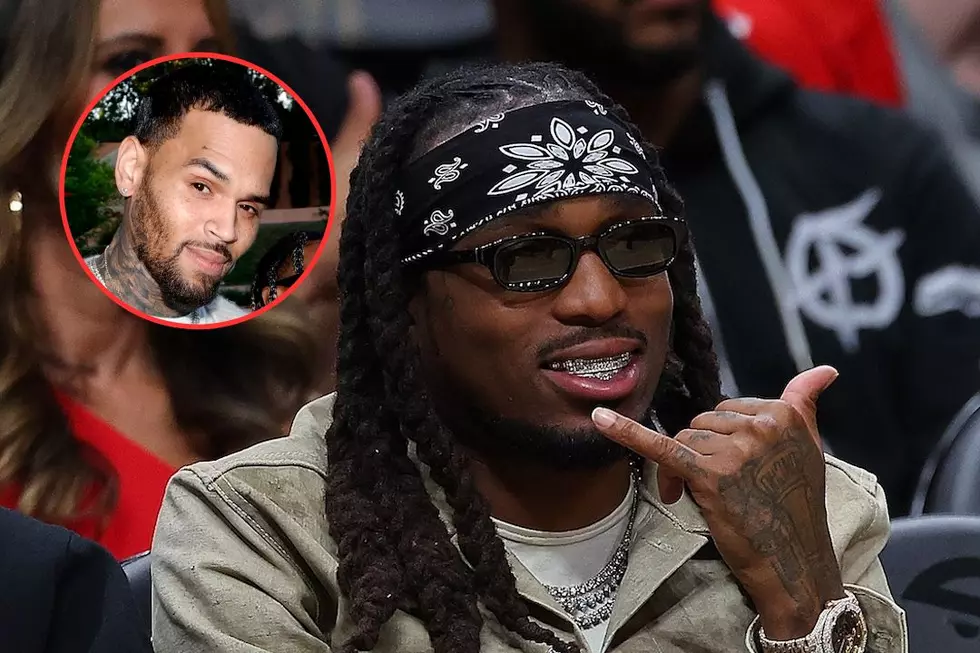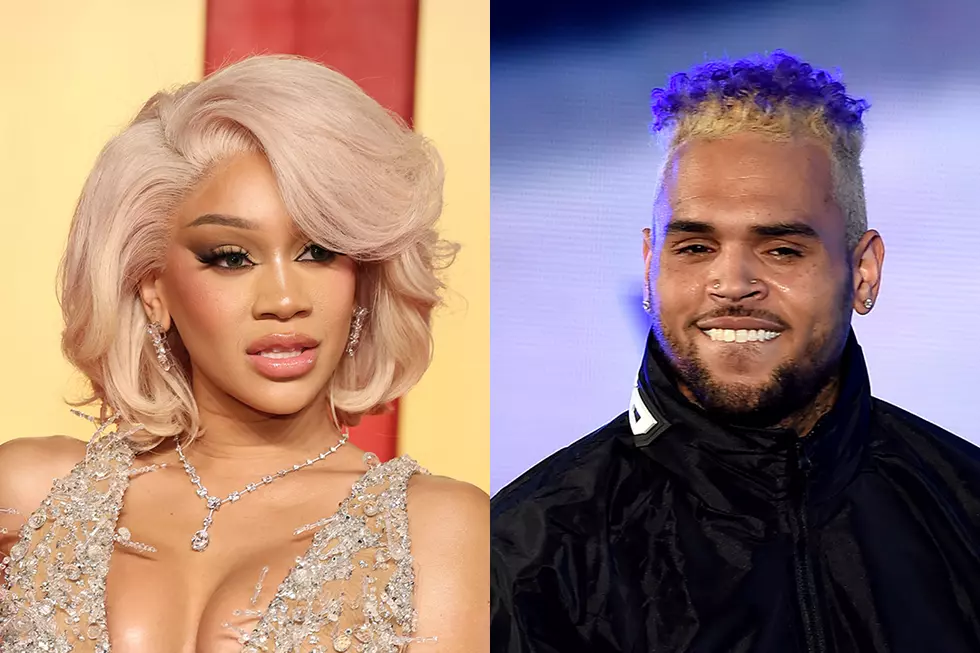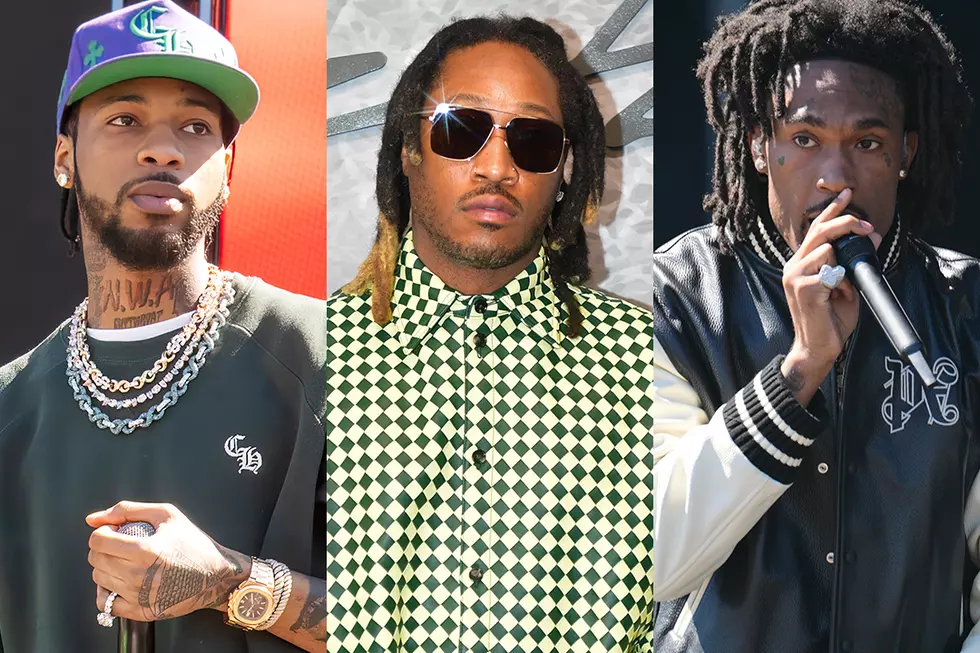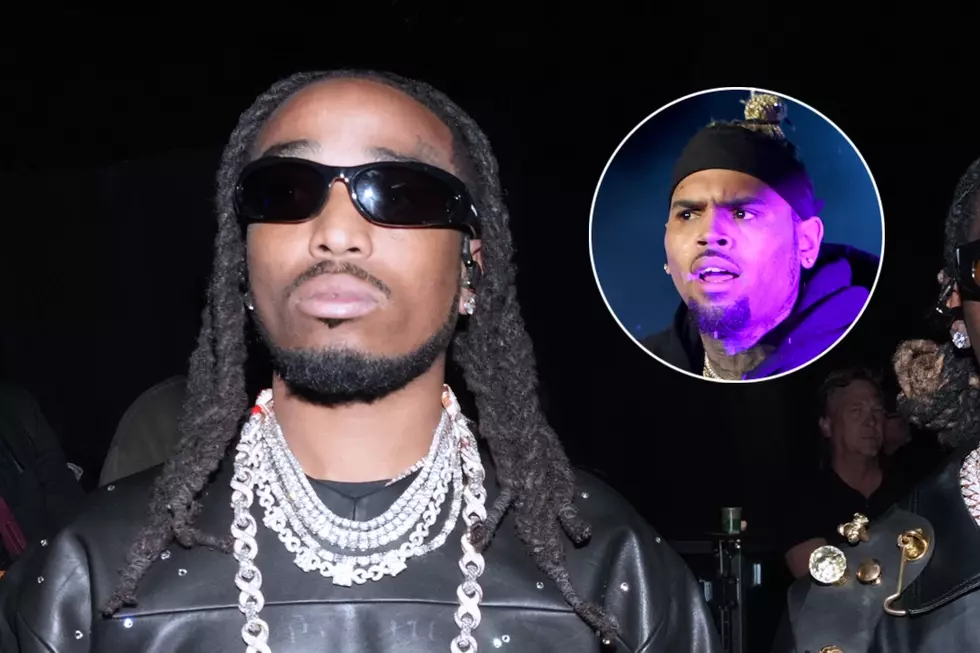
On Calling R&B Singers Rappers
Gawker recently ran a piece chastising the media for frequently calling black singers rappers. It’s been a pet peeve of ours for a while, and the writer rightly calls out the mistake for what it is: lazy and racist. And it certainly is both of those. But here’s the thing: It’s also partly the expected result of R&B swagger-jacking rap for more than two decades.
It probably started with Janet Jackson’s 1986 album Control, which made subtle nods to hip-hop production and even featured some pseudo-rapping. Around the same time, Teddy Riley was creating new-jack swing. Then a pre-“Bobby Brown jaw” Bobby Brown did his whole “bad boy of R&B” thing two years later on Don’t Be Cruel. Dude was doing the running man and rocking a Gumby flat-top (retro kids, right now you’re basically emulating him and Kwame—I’m just saying). A year later he was spitting raps alongside Doug E. Fresh for the Ghostbusters 2 soundtrack. “Too hot to handle, too cold to hold / They’re called the Ghostbusters and they're in control.” Yeah, that happened. It’s the first time I can remember a R&B singer straight up trying to be a rapper, and it was the beginning of a long, long trend.
A few years after that, Mary J. Blige and Puff made the marriage between the two genres official. Inspired by the classic Kid Capri and Ron G mixtapes that put R&B a capellas over classic breakbeats, they invented hip-hop soul, which basically just consisted of putting a singer over rap-lite production.
Conversely, at the same time, rappers were shouting "keep it real" and trying their darnedest to distance themselves as much as possible from R&B singers, who were considered, frankly, pussy—which was also the only acceptable excuse for a real hip-hop head to be listening to R&B at the time. “Hardcore, no R&B singer,” EPMD’s Parrish Smith rapped on “Headbanger.” “Why do you choose to listen to R&B?” an engraged Pharoahe Monche asked on Organized Konfusion’s “Stress.” “Strictly hardcore tracks, not a new jack swing,” A Tribe Called Quest’s Phife spit on “Jazz (We’ve Got).” (Ironically, that line ended up getting Q-Tip a vision-altering eye jammie from Teddy Riley-produced rappers Wreckx N Effect. R&B—kinda-sorta hardcore after all?)
Shunned by the very genre they were trying to incorporate into their music, R&B music basically doubled down. Backward baseball caps and Timbs pretty much became the R&B uniform of the decade. Songs like Montel Jordan’s “This Is How We Do It,” which jacks the beat from Slick Rick’s “Children Story” and lyrically reads like Gangsta Rap for Dummies, became huge hits. And mainstream R&B, with a few exceptions, has basically stuck with this blueprint since. Trey Songz, one of R&B’s more promising stars, has been releasing rap mixtapes for some reason. Chris Brown, who prompted the original Gawker rant, is on the cover of this rap magazine this month, and it makes total sense. One of his biggest hits, “Look at Me Now,” is a straight-up rap song, and he does some perfectly respectable dart-spitting therein. He hangs out with Game. He has more snapbacks and tattoos than Driicky Graham. In case you didn't know, he has a rap sheet. He even beefs, just like a rapper—he infamously brawled with Drake in a Manhattan nightclub over the summer, and released a rap freestyle dissing him about it afterwards. And these are some of the reasons he’s become the most famous, most controversial R&B singer today—with the most devoted fanbase.
So, the press calling an R&B singer a rapper is lazy and racist, yes. But it’s also often kind of what the singer intended.
R&B’s rap obsession has led to some great musical moments—Mary’s “Real Love” and most of her other early classics, D’Angelo’s “Devil’s Pie,” Breezy’s aforementioned banger. But it’s also led the genre astray over time. Musically, R&B leans on melody, while hip-hop is based on the loop, a repeating groove over some hopefully hard-ass drums. Melodies, and chord changes, are an afterthought. In R&B’s rush to bite hip-hop, we’ve had way too many so-called soul songs that merely loop like a hip-hop song, without musical changes, without true hooks or bridges. You’ve got melody-averse verses that basically sound like sing-songy raps. (R. Kelly pioneered this with his early classics, but he did it well, at least.) And, in an attempt to out-macho rappers, real romance and real emotional vulnerability—a touchstone of R&B icons like Marvin Gaye and Donny Hathaway—have been replaced by a macho, hypersexual veneer. The genre has suffered as a result, both critically and on the charts.
Until now? R&B is finally having a mini-renaissance this year thanks to Frank Ocean and The Weeknd, and it’s partly because of both artists’ willingness to shed traditional rap trappings and show a little pain, a little weakness, a little softness, and in the case of Ocean, a little gay-ness. (Bisexual-ness, really.) The funny thing is, even these signs that R&B is finally reversing its hip-hop copycatting ways were trail-blazed by emo rappers armed with Auto-tune: Kanye West on 808s & Heartbreak (the new wave of R&B’s founding document) and Drake, from So Far Gone onwards. And fittingly, both The Weeknd and Ocean are affiliated with rappers.
Anyway, the point of this post isn’t to defend prejudiced, know-nothing mainstream journalists who think all black people look alike. Fuck them. Really it’s just a forum to tell R&B to finally stop swagger-jacking and get back to its roots. And above all, it's an opportunity for this '90s-raised rap nerd to engage in some admittedly needless, good old’-fashioned R&B bashing. It’s in my DNA. In the immortal words of Ice Cube on “The Wrong N---a to Fuck With, “Fuck R&B and the runnin’ man.” Your move, Bobby. —Alex Gale (@apexdujeous)
More From XXL









